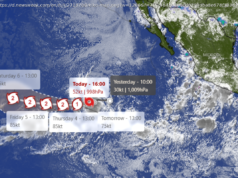Array
In early November, as mass layoffs began at Twitter and blue-check parodies were about to nuke the company’s advertising business, the new owner got a little dorm-roomy. At 1:13 a.m. on a Thursday, Elon Musk tweeted:
This was a pretty wild thing to be thinking about, given all the potentially company-ending chaos that Musk was getting ready to inflict on Twitter. But it also revealed something important about his thought process. Musk has long worried, very publicly, about the dangers that all-powerful cybernetic superintelligences might pose to humanity. So you might think that if Twitter were one of those, that would have been high on his list of reasons not to spend $44 billion to buy the company. Perhaps he didn’t perceive that particular caveat until he was the emptor. Or perhaps the price he paid for Twitter wasn’t the only thing that was high.
Either way, Musk had stumbled on to a rich theoretical vein. Flocks of birds, schools of fish, herds of cattle, swarms of bees, even tumors, brains, and sometimes drones and software agents — what we might collectively call «collectives» — do preternaturally intelligent things when they work in unison.
So Musk was on to something big. Biologists, anthropologists, and information theorists do think that social networks, like Musk’s bird app, show at least some signs of being flocks. On a social network, all the likes and faves, the mutual follows and retweets and shares, turn us individual users into something bigger, smarter, and weirder. And scientists hope that the mechanisms for how that works could someday help tame the crappier aspects of social media — the polarization, the disinformation, the harassment, the Nazis. Understanding Twitter as a collective could make social media less polarizing and more useful.
But the thing is, I don’t think that’s what Musk meant. And since he hit on the idea of Twitter as a collective intelligence, he’s gone on to get every implication of that larger thought wrong. At a core level, he simply doesn’t understand what he bought, or how it works. And whether Musk manages to hold this thing together or spin it into shards, his deeper misunderstanding should make all of us even more worried about the future of social media than we already are. If Twitter is a collective superbrain, that superbrain might be sociopathic.
Here’s a chilling sentence: Elon Musk was right.
A group of seemingly random-acting individuals turns into a collective when it follows a set of simple rules, like «turn right when the guy nearest you turns right» or «make an alarmed noise when you hear an alarmed noise.» From these tiny instruction sets, all sorts of complicated cooperative actions (pack hunting, migrations) arise spontaneously, like a weaver creating an intricate twill pattern just by repeating a couple of simple flicks of their loom. Scientists call those emergent behaviors.
For the behaviors to emerge, though, animals have to communicate. Fish and birds use visual signals about what their neighbors are doing — turn left, dive fast, whatever — to create the gorgeous flowing murmurations of starlings or quick en-masse undulations of anchovy schools. Hyenas use audible calls. Ants lay down pheromone trails. And people? We have language. That’s how we trade information.
In that sense, social networks are definitely collectives. Where else do so many humans communicate with so many other humans than on Twitter and Facebook and TikTok? They’re collectives, and things like viral memes or Arab Springs are what emerge. «Collective behavior happens wherever you have rules of interaction among individuals. You get emergent properties,» says Joe Bak-Coleman, a researcher at the Craig Newmark Center for Journalism Ethics and Security at Columbia University who studies this stuff. «But that’s quite different from the question of, at these very large scales, are we processing information and making good decisions?»
Musk’s tweet attracted Bak-Coleman’s attention because he has been working for years on the idea that understanding the collectivist nature of social networks might make them better. Yes, people communicate on social networks. But the twist, Bak-Coleman warns, is that «social networks change how that information propagates.» Our words go further, faster.






